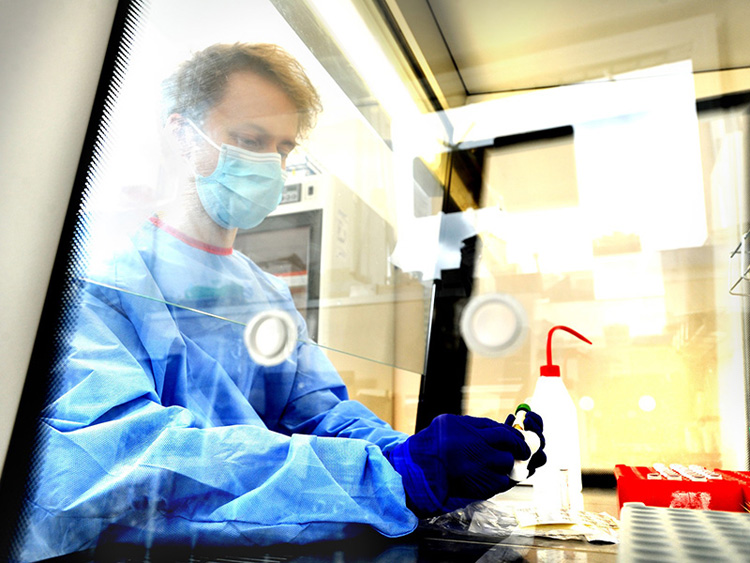文章来源: 上海彤程公益基金会 发布时间: 2021-08-04 00:08:29 点击次数: 次
A gift from the Red Avenue Foundation will enable the expansion of a major research programme aimed at rapidly identifying and interrogating emerging COVID-19 variants.
The funding will support a multidisciplinary team of scientists from the University of Oxford and the Oxford University Hospitals (OUH) NHS Foundation Trust as they continuously assess new COVID-19 variants, and identify those that pose the greatest risk. This work is key to enabling the rapid production and deployment of vaccines tailored to variants of concern.

Huge strides have been made in the understanding of SARS-CoV-2 over the past year, as exemplified by the production of a number of licensed vaccines and monoclonal antibody treatments. However, coronaviruses have the potential to alter their proteins with dramatic effect. Some evolve and escape immune protection produced by vaccination or previous infection, reducing herd immunity. Other changes include mutations giving rise to faster spread, which makes the virus much more difficult to control by lockdown. Spotting and tracking the genetic changes that alter the virus’ behaviour is therefore crucial for making the right interventions to control the disease.
But spotting these genetic changes is not straightforward. As well as comprehensive monitoring of the viral genetic code, specially designed algorithms that reliably detect the presence of the offending genetic changes are needed. Complex lab work demonstrating which and how genetic changes alter the behaviour of the virus must then be carried out.
‘We are heavily involved in resolving these three challenges,’ says lead researcher Derrick Crook, Professor of Microbiology in the Nuffield Department of Medicine at the University of Oxford, and Consultant of Infectious Diseases at OUH. ‘Firstly, we are establishing local sequencing of all SARS-CoV-2 strains in Oxford and working with others who are doing the same. Secondly, we are now working on substantially improved ways of taking the sequence from sequencing machines across the world and better reconstructing the genomes, revealing precisely and very rapidly the offending or new genetic changes.
‘Thirdly, we hope to work out perfectly how a genetic change really alters the virus’ behaviour, identifying whether it escapes immune protection. This is going to enable us to process very large numbers of samples simultaneously and accurately.’
The Red Avenue Foundation’s generous donation will enable the Oxford team to hire three additional postdoctoral researchers, thus significantly enhancing their capacity to investigate these new variants as they inevitably arise.
Oxford researchers within the University and NHS are well positioned to study variants at the epidemiological, molecular, immunological and structural levels. As well as conducting ongoing surveillance of the virus within the Oxfordshire community, the team works closely with colleagues at Public Health England, Porton Down, to characterise new variants submitted to the UK from around the world.
This combined infrastructure has already enabled the identification and characterisation of four variants with mutations that appear to have distinct selective advantages: the Alpha, Beta, Gamma and Delta variants first detected in the UK, South Africa, Brazil and India respectively.
Denny Zhang, Chair of the Red Avenue Foundation, says: ‘It is our great honour to have the chance to support the NHS. We hope our efforts will help us all to overcome this difficult time together.’
‘The donation from the Red Avenue Foundation is crucially enabling our work to establish better global surveillance of SARS-CoV-2 for the benefit of the Oxford University Hospitals, the UK and the world’s response to COVID,’ adds Professor Crook.
The Red Avenue Foundation has been operating all over the world since 2002. Its completed and ongoing projects include pandemic responses, aid education, environment protection, rural teacher training, the development and maintenance of infrastructure, and financial aid to patients suffering from cardiovascular diseases and leukaemia. Based on these projects, the Red Avenue Foundation has cultivated a philanthropy ecosystem that consists of six components: education, healthcare, sustainability research, environment protection, impact investment and international cooperation. From 2002 to 2021, the Red Avenue Foundation has supported over 105 projects, helped over 100,000 people, and benefited a community of tens of millions.